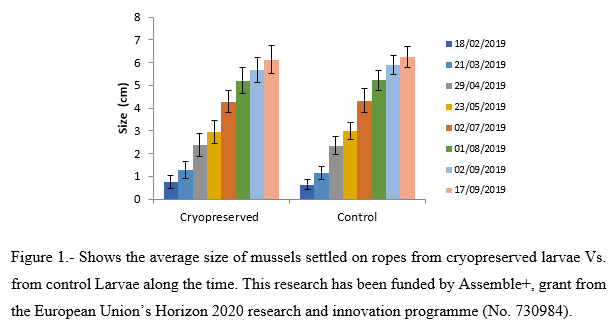FROM THE OCEAN TO THE FREEZER AND BACK: MUSSEL CRYOPRESERVATION
The global production of blue mussel (Mytilus galloprovincialis) has a significant role on the marine aquaculture industry; hence it is one of the most cultivated mollusk worldwide (FAO, 2018). However, several hazards affect the culture and the seasonal supply of mussel seed, which sets up an increasing interest on the development of inland seed production without seasonal limitation and safe of global variations. Cryopreservation can provide the stable storage of living resource of mollusk early development stages throughout the year and the possibility of selection of genetic lines according to production issues. Here, cryopreservation long term effects were analyzed on cryopreserved mussel larvae and their capacity for competent seed production using two different larval stages and protocols. Mature blue mussels from Galicia (NW Spain) were spawned and cells were incubated to produce 72h-old D-larvae for these long-term experiments where larvae were incubated post-thaw in the lab on a full larval rearing until reaching the juvenile stage. Then those with higher survival rates were settled into culture ropes and moved into a mussel raft for a year-round monitored incubation (Fig. 1). The study of the cryopreservation long term effects is essential to achieve the totally implementation of cryopreservation for Aquaculture and fish management.
